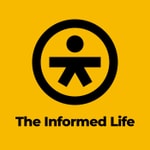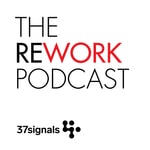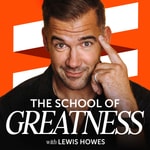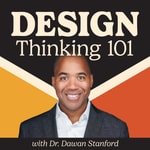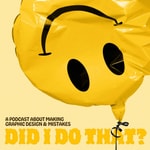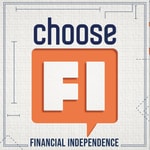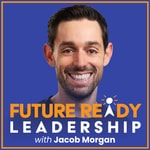Product Hunt Radio – Détails, épisodes et analyse
Détails du podcast
Informations techniques et générales issues du flux RSS du podcast.

Product Hunt Radio
Product Hunt
Fréquence : 1 épisode/10j. Total Éps: 215

Classements récents
Dernières positions dans les classements Apple Podcasts et Spotify.
Apple Podcasts
🇫🇷 France - technology
25/12/2024#97
Spotify
Aucun classement récent disponible
Liens partagés entre épisodes et podcasts
Liens présents dans les descriptions d'épisodes et autres podcasts les utilisant également.
See all- https://cash.app/
17220 partages
- https://www.policygenius.com/
365 partages
- https://evernote.com/
310 partages
- https://www.youtube.com/
4246 partages
- http://youtube.com/
27 partages
Qualité et score du flux RSS
Évaluation technique de la qualité et de la structure du flux RSS.
See allScore global : 63%
Historique des publications
Répartition mensuelle des publications d'épisodes au fil des années.
How to bounce back as a maker with Josh Howarth
Épisode 215
mercredi 22 avril 2020 • Durée 48:53
On this episode Abadesi talks to Josh Howarth, co-founder of Exploding Topics.
In this episode they talk about...
His early days as a maker and what he would change if he could do things over again“It’s not the case that you build it and they will come. It took me two months to build and then I was like, now what? I hadn’t thought at all about marketing channels.”
Josh talks about one of the projects that he created at the start of his journey to becoming a maker. He worked on a website plugin that he had seen other people implement where you spun a wheel to see what kind of discount code you would get for entering your email.
He says that he didn’t realize how difficult getting distribution for the plugin would be and spent a lot of his time after releasing it reaching out to different people trying to get business to sign up. He achieved some revenue from it but it seemed to quickly fizzle out.
“You can usually tell pretty quickly whether it will work or not if you’re putting it out there for people to see. I probably should have quit sooner, like after two months instead of six on my previous project.”
He realized that he didn’t have any passion for the project and that it would have been better to work on something that he cared deeply about. In hindsight, he also realized that he spent too much time working on it when it was fairly clear that it would always be a slog to try to keep the revenue up.
“If the goal is to run your own business, you should go for a space that you’re interested in because someone else who is passionate about it will beat you in the end.”
The genesis and evolution of Exploding Topics and the lessons he’s learned through the process“It’s 100 times easier to bootstrap a profitable online business if you ride one of these big market trends. You will grow with the opportunity and the competition won’t be too fierce either. That’s when I started to build a project that would spot these trends, to scratch my own itch.”
His experience with his previous project led him to research emerging trends that he could potentially build an online business out of. He did a lot of research and turned his research project into a web app when he realized that the results might be of use to other people as well.
“I didn’t intend for it to become a product in itself but I decided I had solved this problem for me, I may as well turn it into a web app and see if other people are interested in it.”
He started to post the project on the web with lists of the top trends that he was seeing at the time, which proved to be very interesting to people. One day his site was near the top of Hacker News when his database went down, leading him to scramble to upgrade to a paid solution before losing all the traffic that he was getting.
He explains what he learned and what he would have done differently with Exploding Topics if he was starting over again.
“You can feel it when you have something that people like and that is taking off. With the with the previous SaaS app it felt like I was pushing like a boulder uphill, but this thing was like snowball, everywhere I posted it people loved it and it just kept growing and growing.”
How writing updates kept him accountable as a solo founder and his advice for finding a co-founder you can work well with“Make sure there’s a good co-founder fit, make sure that you know them and they’re going to bring a lot.”
Josh says that it was very gratifying to see people use Exploding Topics to create their own sites based on emerging trends. This was what he had hoped to do with his original project with the web plugin.
He says that it was important as a solo founder to write updates on Medium for his users. This encouraged him to make sure that he was making progress consistently on the site, because he needed to show his users and readers that he was always working on it. He also heard a lot of useful feedback from users who would use the site and sometimes even from people who were simply following his journey.
He ended up taking on a co-founder for Exploding Topics via the sale of his site. He explains what the most important attributes in a co-founder are and why he and his co-founder work well together.
“Writing updates and keeping people updated on your progress is fantastic as a sole founder because it keeps you accountable. It also helps to clarify your thoughts and direction. It helps to get support from other people who reach out to offer support, advice and guidance.”
We’ll be back next week so be sure to subscribe on Apple Podcasts, Google Podcasts, Spotify, Breaker, Overcast, or wherever you listen to your favorite podcasts. 😸
Making good typography more accessible and common design pitfalls to avoid with Matthew Paul
Épisode 214
mercredi 15 avril 2020 • Durée 43:24
On this episode Abadesi talks to Matthew Paul, software product designer, researcher, and front-end engineer. He’s a former product designer at InVision, he’s worked on software and design systems at IBM, and has designed prototypes at Apple.
In this episode they talk about...
The open-source design project he’s working on, and how to make good design more accessible“As a designer you always have to bring the customer back to the conversation, and you have to invite the engineers, product directors, VPs, into your conversations with the customers, and let them hear what the customers have to say.”
Matthew points out that type is being used on screens in more and more places these days, including in non-traditional places like in heads-up displays in vehicles and in VR headsets. He says that it’s important to make sure that good type is accessible to everyone, everywhere, and explains how the project he’s working on will enable that.
Common design pitfalls to avoid and advice for working with designers“Seriously, don’t be afraid to ask for help. At a decent company, at a decent place, no one’s gonna get dinged for asking for help. You’re going to get dinged, not right away, but you’re going to get dinged if you don’t. You just end up burning out or not doing a good job at any of the things.”
He runs through a bunch of different common mistakes that people make when they’re designing a product or working with a design team. He walks through some projects in the past that he’s been a part of that didn’t work out as intended and what the key issues turned out to be on those teams.
“Don’t run a design sprint unless you actually know what it is and how to do it and have a plan to make it successful.”
He explains the right ratio of designers to software engineers, saying that you want to usually have one designer for every eight software engineers. He also talks about the pitfalls of running a design sprint without really knowing what you’re doing.
He also talks about what it means to be “neuro-atypical” and why we need more inclusion of different thinking, learning, and communication styles in the workplace.
“They expect them to be a certain person, to fit a certain mold, to have good executive functioning, to have a set of cognitive processes that allow you to work in a linear fashion. The fact is, our brains are not all built that way. That’s neurodiversity.”
How he’s working on his personal development and where he learns the most“I try to meet new people. I literally have gotten every single job that I’ve ever had through Twitter, just through them reaching out to me, me reaching out to them, and introductions happening that way.”
Matthew explains the evolution in his thinking over time on how best to keep up with the latest trends in design and says that he used to follow all the blogs very closely when he was younger but has moved away from that as he’s grown as a designer.
He offers a book recommendation if you’re interested in getting into typography, and says that he learns the most from other people. He tries to travel often to be exposed to new people and talk to them in person about what they’re working on.
“I think I just learn the most from meeting new people and hearing what they’re working on — taking a little spark of what they’re working on and seeing if I can include that in my work.”
We’ll be back next week so be sure to subscribe on Apple Podcasts, Google Podcasts, Spotify, Breaker, Overcast, or wherever you listen to your favorite podcasts. Big thanks to Headspin Mobile for their support. 😸
Books and Products Recommended in This Episode1Password — Save your passwords and logins with one click.
AirPods Pro — New AirPods with active noise cancellation.
Detail in Typography by Jost Hochuli
Headspace Sleep — Sleep section of the popular meditation app.
Magnet — Window manager for Mac.
Simplenote — Simple, lighter alternative to Evernote.
How to grow your brand with Instagram with Year & Day Founder Kathryn Duryea Wyndowe
Épisode 205
mercredi 12 février 2020 • Durée 45:22
On this episode Abadesi talks to Kathryn Duryea Wyndowe, founder and CEO of Year & Day. They make beautiful tableware that they sell direct-to-consumer online via their website.
In this episode they talk about...
How she came up with the idea for Year & Day“I felt very empowered by this idea of buying a new set of plates outside of this proposition of getting married and a wedding registry.”
Kathryn graduated from Stanford GSB and started working at Tiffany & Co., helping to bring them online. She was inspired by the new direct-to-consumer brands and had always loved the ritual of setting the table. She decided she wanted to make “tableware fun again.” Through trying to buy a set of tableware for herself, she found that the experience was confusing and uninspiring. After going through that, she “turned on the other side of her brain” and dug into the market for tableware, which accounts for $7B in annual spend, which led her to start Year & Day.
Her crazy year preparing to launch the brand“It took about 11 months, almost a year, to go from basically this is my full attention, full-time professional endeavor to now we are selling to customers.”
Kathryn thought that she could launch in eight months, but it actually took almost a year. She talks about the wide range of tasks that she had to tackle, basically by herself, from design to manufacturing to fulfilment to arranging for web development. She talks about “fighting against the inertia of the world” to will the brand new company into existence. She says that her launch strategy was to email 500 of her friends about the company and that in the beginning she had her brother doing customer service. Since then they’ve grown to a team of 8 based in San Francisco.
“All aspects of starting a business are both wildly thrilling with high highs and low lows and real challenges, but what's so exciting about those early months and days is that this idea that you formulated, now you're starting to bring it into shape into the real world.”
The power of Instagram and the rise of direct-to-consumer“A lot of the product discovery these days happens on social media on platforms like Instagram. People are relying more and more on people that they follow there to help them discover products that they’ll love, that suit their lives.”
The rules for marketing to the digital-native generation have changed with the advent of social media platforms and influencers. Kathryn explains why Instagram is such a powerful platform and why people are gravitating towards a different kind of shopping experience. She talks about the importance of curation when it comes to products like tableware.
She also talks about some of her favorite productivity hacks, including why she meditates, works from home one morning a week, and why she still uses good old fashioned pen-and-paper for her to-do lists.
“As an entrepreneur you could literally work 24 hours a day and still feel like your list is growing, so in order to have a healthy balance you need to actually set some boundaries.”
She also discusses some of her favorite products.
We’ll be back next week so be sure to subscribe on Apple Podcasts, Google Podcasts, Spotify, Breaker, Overcast, or wherever you listen to your favorite podcasts. Big thanks to Knowable for their support. 😸
Companies and Products Mentioned on This EpisodeAudm — The world’s best longform journalism, read aloud.
Insight Timer — The best free meditation timer.
Snagit — The best screen capture software.
Episode 74: Charles Hudson
Épisode 115
mardi 15 mars 2016 • Durée 01:00:51
Charles Hudson is founder of Precursor Ventures and a partner at SoftTech VC. This episode is about startup investing We talk about what makes a great investor, how Charles evaluates founders, how he raised a fund, advice to aspiring investors and more. We also talk about his past experiences at the CIA, Google, diversity in tech, the events business, and much more. Edited by @alexkontis Lavish Praise to @chudson Constructive Criticism to @eriktorenberg
Episode 73: Jason Fried
Épisode 114
vendredi 4 mars 2016 • Durée 56:21
Jason is the founder and CEO of Basecamp. In this episode we talk about building a company that lasts 40 years, what it’s like to build a remote team, how he thinks of the professional year in terms of seasons, daily rituals, and how he defines success. Edited by @alexkontis Lavish Praise to @Jasonfried Constructive Criticism to @ErikTorenberg
Episode 72: Sierra DeMulder
Épisode 113
mercredi 2 mars 2016 • Durée 45:18
Sierra DeMulder is a renowned spoken word poet who’s just released her third book, Today Means Amen. In this episode we talk about what it means to be a poet today, how a poet makes a living, the craft of writing, editing, performing, and then themes in her work, which include relationships, mental health, shame, humor, and much more. Edited by @alexkontis Lavish Praise to @Sierrademulder Constructive Criticism to @Eriktorenberg
Episode 71: Justin Boreta from The Glitch Mob & Team
Épisode 112
mardi 1 mars 2016 • Durée 46:41
This week's episode is with Justin Boreta of the Glitchmob, an electronic music group from LA, and the team that helped him make the app Hyperspektiv We talk about what inspired him to make the app in the first place, how he balances art and business, how he defines and measures success, the impact meditation has had on him, and much more. Edited by @alexkontis Lavish Praise to @boreta Constructive Criticism to @eriktorenberg
Community Stories 1: What's the first thing you built?
Épisode 111
mardi 1 mars 2016 • Durée 15:36
We're trying something new. We asked the Product Hunt community on Anchor, a new platform for bite-sized audio conversations, "what's the first thing you built?" Here are some of the answers. Enjoy. :) P.S. Check out Anchor. It's fun. https://www.producthunt.com/tech/anchor-4
Episode 70: Auren Hoffman
Épisode 110
lundi 29 février 2016 • Durée 01:00:06
This week’s episode is with Auren Hoffman. Auren is a prolific entrepreneur and investor, having started and sold Live Ramp and invested in Thumbtack, Brightroll and many more. In this episode we get into a lot - the concept of who you know vs what you know, preserving optionality regarding career, competing with computers, the future of college, how to pick life partner, how to hire good people, how to give valuable feedback, navigating acquisitions, and much more. Auren is a fascinating thinker and has a lot to say. if you like what you hear tweet @auren to let him know, and do read his fantastic answers on Quora.
Episode 69: Mitch Kapor
Épisode 109
jeudi 25 février 2016 • Durée 24:17
Mitch Kapor is a successful entrepreneur, perhaps best known for founding Lotus, and investor, having founded Kapor Capital which focuses on tech startups that have strong social impact This episode we talk about Mitch's come up story, the world of impact investing and how Kapor measures impact, the ed-tech space, the role of government in tech and much more. This interview was recorded last year at the Launch Festival. Edited by @alexkontis Lavish Praise to @mkapor Constructive Criticism to @eriktorenberg

